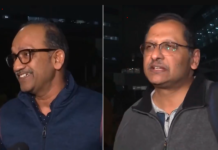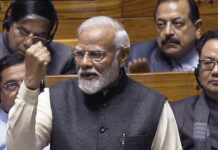
According to a statement released by his ministry on Friday, India will achieve zero-diesel use in agriculture by 2024 and would replace fossil fuels with renewable energy.
Singh underlined the importance of joint efforts between the Central and state governments in the large-scale implementation of energy efficiency measures during a meeting with officials from the power ministry and the ministry of new and renewable energy.
The minister also emphasised the importance of establishing a state-specific energy efficiency and conservation agency. He asked the governments to adopt an action plan to meet the goals set forth.
He went on to say that the central government is aiming to create a new and modern India, which will be impossible to do without modern power systems, and that it looks forward to cooperating with all states and UTs to do so.
During the discussion, Singh stated that commercial structures should follow ECBS and domestic buildings should follow ECO NIVAS, both of which should be included in the building code. He claims that non-fossil fuel methods will meet all power demands with the help of energy storage.
He reaffirmed Prime Minister Narendra Modi’s commitment to intensifying India’s battle against climate change and global warming, emphasising the importance of coordination between the centre and states to ensure Energy Transition across all potential areas of the economy.
This meeting was held by the Prime Minister’s promise made at COP26 to reduce our country’s carbon intensity.
The goal of this meeting was to ensure that the state was contributing to India’s climate obligations and that each state and UT could be given energy-saving targets.
Additional chief secretaries and principal secretaries of state and UT power and energy departments also participated to discuss their roles in attaining India’s energy transition goals and meeting climate commitments.











